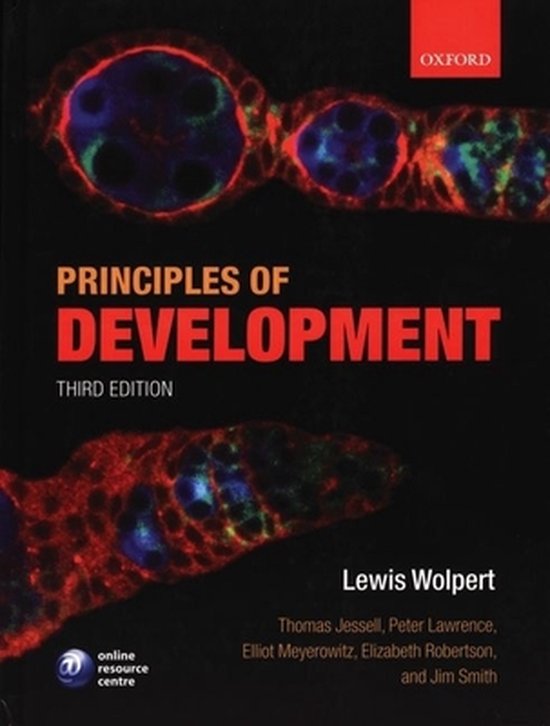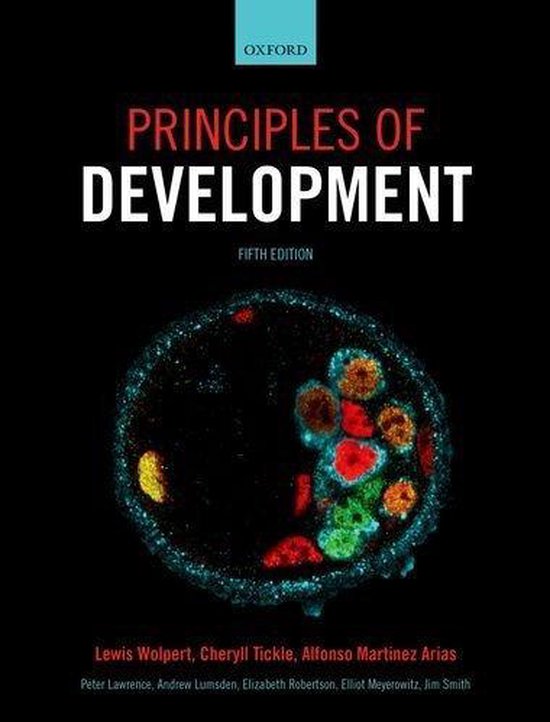
Principles of Development
Developmental biology is at the core of all biology. It deals with the processes by which the genes in the fertilized egg control cell behavior in the embryo and so determine its pattern, its form, and much of its behavior. The progress in developmental biology in recent years, with the applications of advances in cell and molecular biology, has been remarkable, and an enormous amount of information is now available.
Designed for undergraduates, Principles of Development emphasizes basic principles and key concepts in developmental biology. Central to the authors' approach is the idea that development can best be understood by analyzing how genes control cell behavior. They have assumed that students have some basic familiarity with cell biology and genetics, but all key concepts, like the control of gene activity, are explained in the text. The authors have resisted the temptation to cover every aspect of development and have instead focused on those systems that best illuminate common principles, demonstrating throughout the book that there are universal principles governing development. The focus of the text is on vertebrates and Drosophila, but not to the exclusion of other systems, such as the nematode and the sea urchin, where they best illustrate a concept. An important feature of the book is the inclusion of the development of plants, a topic that has some unique and significant attributes but one that is usually neglected in other texts. Principles are presented clearly and numerous summaries are provided, both in words and in pictures. The illustrations in the book have been carefully designed and chosen to illustrate both experiments and mechanisms.
Designed for undergraduates, Principles of Development emphasizes basic principles and key concepts in developmental biology. Central to the authors' approach is the idea that development can best be understood by analyzing how genes control cell behavior. They have assumed that students have some basic familiarity with cell biology and genetics, but all key concepts, like the control of gene activity, are explained in the text. The authors have resisted the temptation to cover every aspect of development and have instead focused on those systems that best illuminate common principles, demonstrating throughout the book that there are universal principles governing development. The focus of the text is on vertebrates and Drosophila, but not to the exclusion of other systems, such as the nematode and the sea urchin, where they best illustrate a concept. An important feature of the book is the inclusion of the development of plants, a topic that has some unique and significant attributes but one that is usually neglected in other texts. Principles are presented clearly and numerous summaries are provided, both in words and in pictures. The illustrations in the book have been carefully designed and chosen to illustrate both experiments and mechanisms.
| Auteur | | Lewis Wolpert |
| Taal | | Engels |
| Type | | Hardcover |
| Categorie | | Wetenschap & Natuur |



